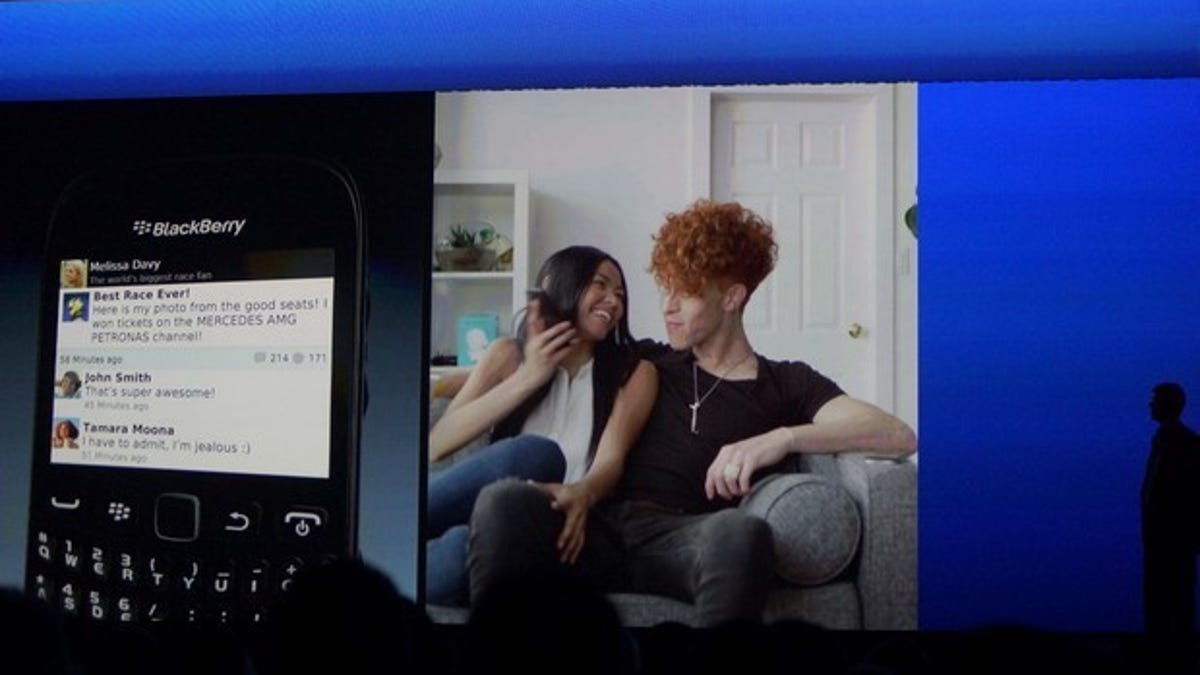BBM and its quest to become a social phenomenon
BBM is one of the rare bright spots at BlackBerry right now, and the company is hoping to capitalize through some word-of-mouth hype.

BlackBerry's BBM messaging app needs a little help from its friends.
Since launching on Apple's iOS and Google's Android last month, the popularity of BBM has been a rare bright spot in an otherwise messy situation at the company. But while BBM has done well in select foreign countries where its phones are still popular, it has had less luck in its home market of North America, where BlackBerrys remain passe.
As such, BlackBerry knows it needs to woo former BBM users, and introduced "Tell your friends," a way for the BlackBerry faithful to broadcast their BBM contact info over social networks, essentially turning them into evangelists. It's a tacit acknowledgement that for a company known for security and privacy, it needs to be more open.
"We really want to focus on bringing those people back," Andrew Bocking, the head of BBM messenger, told CNET. This will involve more features -- like voice calling and video chat, which are expected in the coming months for Android and iOS -- and more awareness, he said.
The company on Thursday released new app updatesfor Android and iOS that it hopes will capitalize on the loyalty of its current fans. The updates include support for Wi-Fi-only iPad and iPod Touch devices, as well as "Tell your friends."
BlackBerry is hoping to build upon BBM's early success as a cross-platform app. It saw rapid growth during its first day of launch on its competitors' platforms last month, reporting 10 million downloads within 24 hours, and 80 million users within its first month.
BlackBerry needs the good news. The company has been struggling to keep afloat in recent years, and BBM seems to be one of the few parts of the business that elicits excitement.
Bocking likes to tout BlackBerry's traditional strengths, security and privacy, when talking about the company's signature messaging app. But, he knows that same tight control can also slow the app's growth in some markets, like the US.
"We need to balance that a little more," he said.
Take the initial download process. Unlike other popular messaging apps, BBM does not search through your mobile address book for contacts when you initially open it. Instead, BBM users need to actively build their own contact lists by promoting their PINs, a digital ID that is a series of numbers or letters. Private, but clunky and hard to give out.
The new "Tell your friends" feature grew out of a need to address that.
"One of the things we saw in the first few weeks was a lot of people were organically sharing barcodes and on Instagram, so we want to build on that," Bocking said.
BBM also will focus on amping up its social media features, specifically its BBM Channels, which is currently in testing. Channels is a Twitter-like group chat housed within the BBM app. It allows users to follow channels run by people, celebrities, or brands, but also lets users chat and share files and their calendars within channels. Bocking said BBM decided to create Channels because users were creating huge group chats for similar purposes but wanted to add more people than group chat limits allowed.
Channels is also where BBM plans to make its money. Bocking intends to keep the service free, and in order to do so, BBM will have to figure out ways to make money without annoying its users.
"When you're trying to communicate with somebody, you don't want a banner (ad). That's not cool. So that's not going to happen," he said.
Instead, BBM is looking into offering featured placements or promoted updates for BBM Channels, similar to promoted tweets and accounts found on Twitter.
Bocking thinks Channels will set the messaging service apart from other popular messaging apps, like Whatsapp, which has garnered an impressive 350 million users, or SnapChat, which is rumored to have passed up a $3 billion offer from Facebook.
BBM, as of last month, said it had 80 million users after opening itself up to iOS and Android.
Bocking, however, was dismissive of the competition. Whatsapp wants to replace SMS text messages, and SnapChat deliveries temporary images between users, he said. They don't seem interested in creating things like Channels or adding voice and video capabilities, or "a rich user's experience across the board," as Bocking describes it.
"It's not in their DNA. They've done really well, but we have slightly different focuses in that regard."
Correction, 1:32 p.m. PT: This story has been changed to reflect that BBM has 80 million users, not downloads, as of last month.
